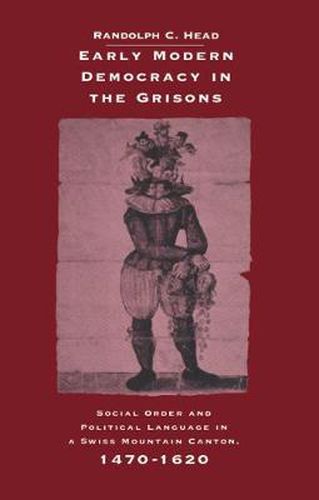Readings Newsletter
Become a Readings Member to make your shopping experience even easier.
Sign in or sign up for free!
You’re not far away from qualifying for FREE standard shipping within Australia
You’ve qualified for FREE standard shipping within Australia
The cart is loading…






The Freestate of the Three Leagues in the Grisons, a rural confederation in the Swiss Alps, was one of the most unusual political entities in early modern Europe. In the sixteenth century, its inhabitants enjoyed popular sovereignty and remarkable local autonomy, and many of them insisted on political equality among citizens, and on political leaders’ responsibilities to their communities. The author uses pamphlets and political documents to trace the Freestate’s evolution, focusing on its institutional structure and on the political language used by its inhabitants. This language included radical statements about ‘democracy’ and rule by the ‘common man’. Even so, the Freestate participated in contemporary European political developments; but because it was different, it provides new perspectives on political ideas in sixteenth-century Europe. It represents a political culture distinct from both absolutism and later liberal ideas.
$9.00 standard shipping within Australia
FREE standard shipping within Australia for orders over $100.00
Express & International shipping calculated at checkout
The Freestate of the Three Leagues in the Grisons, a rural confederation in the Swiss Alps, was one of the most unusual political entities in early modern Europe. In the sixteenth century, its inhabitants enjoyed popular sovereignty and remarkable local autonomy, and many of them insisted on political equality among citizens, and on political leaders’ responsibilities to their communities. The author uses pamphlets and political documents to trace the Freestate’s evolution, focusing on its institutional structure and on the political language used by its inhabitants. This language included radical statements about ‘democracy’ and rule by the ‘common man’. Even so, the Freestate participated in contemporary European political developments; but because it was different, it provides new perspectives on political ideas in sixteenth-century Europe. It represents a political culture distinct from both absolutism and later liberal ideas.